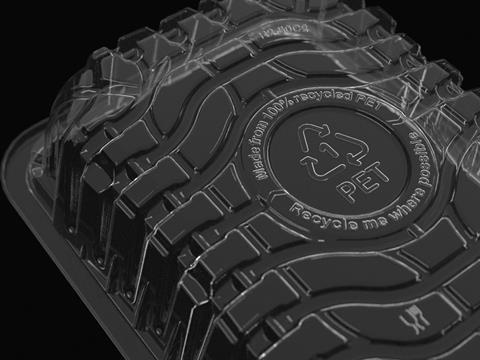
Klöckner Pentaplast (kp) and Viridor have agreed a “transformative” five-year collaboration, locking in an annual supply from Viridor to kp of 8,000 tonnes of post-consumer recycled PET.
The partnership argues that this agreement strengthens a long-standing partnership and common commitments towards a sustainable and circular economy for food packaging. Securing a stable supply of post-consumer material is fundamental to drive change at scale for an improved recycling system in the UK.
The five-year agreement will be fulfilled by Viridor’s new £65m Avonmouth Resource Recovery Centre which will make kp their largest rPET flake customer and subsequently their largest buyer of rPET flake in the UK.
In the first two years, Viridor’s largest UK multi-polymer processing plant will reportedly produce 60 kilo-tonnes (KT) of recycled plastics from 81KT/year feedstock consisting of 1.6 billion bottles, pots, tubs, and trays. The partnership plans to raise volume to 63KT from 1.7 billion bottles, pots, tubs and trays in year three, increasing volume year on year. From this, a reported 8,000 tonnes a year of the recovered and processed post-consumer recycled PET will be supplied to kp.
Adam Barnett, President of the Food Packaging division at kp, said: “We are thrilled to announce this extended agreement with Viridor, which has been a significant partner of kp’s for many years. We want to take our partnership with Viridor to the next level of circularity as we continue to meet our common goals in true closed-loop tray to tray recycling. As a strong and stable end market, kp is driving change at scale for a circular future.”
Viridor’s Managing Director of Recycling, Simon Hicks, added: “UK residents want their recycling efforts at home rewarded with clear evidence that plastic which has been designed to be recyclable and can be returned to the economy. This is what the partnership with kp will accomplish. We will continue to encourage depositing the Right Stuff in the Right Bin and we, at Viridor, will then ensure that UK plastic is given another life. It need not be single-use.”













